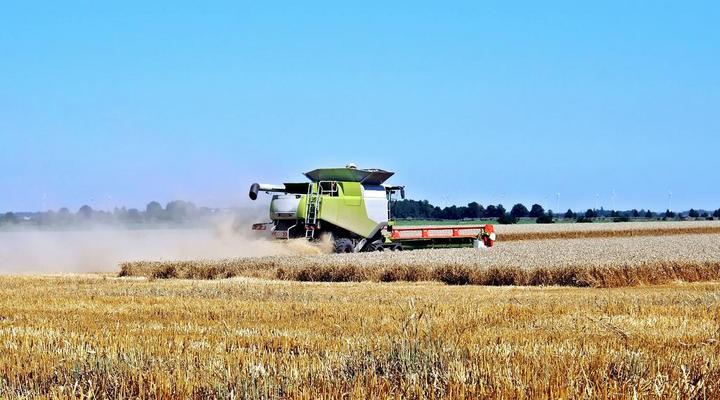


Overseas Agriculture: Why Dutch Agriculture Can Create MiraclesCooperatives December 28, 2021Why can Dutch agriculture create miracles?51.jpgThe Netherlands has a national area of only over 40000 square kilometers, a population of 17 million, and per capita arable land of less than 2 acres. However, it is the world’s second largest exporter of agricultural products, second only to the United States, and is a typical small country and large farmer. The reason why the Netherlands has become a model of globally developed agriculture is not only because of its level of agricultural technology and equipment, management, and quality and efficiency, which can be considered world-class, but also because of the extremely important role played by the developed cooperative system. From the perspective of management system, Dutch agriculture is cooperative agriculture, and cooperatives are the most powerful institutional support for creating Dutch agricultural miracles. This has a strong reference value for the current development of agricultural cooperatives in China.Dutch agricultural cooperatives have a long history of cooperative genetic supportThe Netherlands is one of the earliest countries in the world to develop cooperatives, with a development history of over 150 years and strong stability. Its support and leading role in agricultural development continues to strengthen. On the one hand, the Dutch agricultural land adopts a single child inheritance system, and the intergenerational inheritance of family farms is relatively stable. This not only restricts land subdivision, but also makes it easier to generate organizational loyalty to cooperatives, thereby ensuring the basic stability of the operation of cooperatives. On the other hand, due to the long-term operation of the market economy system and strong contractual awareness, farmers who join cooperatives rarely engage in short-term speculative behavior and rarely sell agricultural products privately without complying with sales contracts with cooperatives. This further strengthens the interdependence between family farms and cooperative societies, promoting the stable development of cooperatives.In contrast, the development of Chinese cooperatives is still in its early stages, and the cultivation of farmers’ cooperative spirit and culture still requires a long-term process. But it must be given sufficient attention from now on. Support for the development of cooperatives cannot simply focus on hardware investment and directly give money to goods. At the same time, attention should be paid to the software construction of cooperatives, and high attention should be paid to cultivating cooperative awareness, cooperation ability, integrity awareness, and contract spirit of cooperatives.The overall performance of Dutch agricultural cooperatives is the development of the entire industry chainIn the development of the entire industry chain of Dutch agricultural cooperatives, the benefit sharing mechanism throughout the entire process effectively enhances the economic incentives for farmers to participate in cooperatives. In other words, farmers’ participation in cooperatives can not only directly benefit from technical services, supply of means of production and sales of agricultural products, but also share the value added of industrial links such as sorting, warehousing, processing and packaging through the return of profits from the trading volume with cooperatives. The full industry chain development model of cooperatives has extended the industrial chain, increased added value, enhanced market competitiveness, and more importantly, strengthened incentives for farmers’ interests, increased their recognition and cohesion in participating in cooperatives.Currently, farmers’ cooperatives in China are generally small in scale and have a weak foundation, making it difficult to achieve the development of the entire industry chain in the short term. The vast majority of them still focus on the production process. The main bottleneck in China’s current agricultural product production is not insufficient supply capacity, but a serious lack of high-quality and safe agricultural product supply. Therefore, Chinese cooperatives should first achieve substantive promotion in important aspects such as variety improvement, technological improvement, standardized planting, and quality control system construction. By growing into suppliers that organize and lead farmers to produce high-quality agricultural products, they should strive for corresponding value added, and then achieve the development goal of driving the income growth of cooperative members. From a trend perspective, more and more cooperatives should create conditions to gradually expand into the entire industrial chain and strive for greater profit space.Dutch agricultural cooperatives have strong technological integration capabilitiesMost Dutch agricultural cooperatives have advanced technology systems covering the entire industrial chain, demonstrating strong technological integration capabilities. The key is not just that the Netherlands has world-class agricultural universities, seed companies, agricultural equipment production enterprises, etc., which can continuously innovate and introduce new agricultural technologies and equipment to meet the development needs of cooperatives. Equally important is the stable development of Dutch agricultural cooperatives, continuous expansion of industrial scale, and strong demand for new agricultural technologies and equipment. Stable and sustained effective demand is the key for Dutch agricultural cooperatives to absorb and integrate various advanced agricultural technologies and equipment at a high level.52.jpgThe vast majority of cooperatives in China are mainly small farmers, and it is not realistic to enable them to independently absorb and integrate new agricultural technologies and equipment in the short term. This means that the role of the government in promoting agricultural technology progress is crucial, and promoting agricultural technology input through financial subsidies in response to the current situation of cooperatives is not only urgent but also irreplaceable. Whether it is new varieties, new technologies, new facilities, or new equipment, it requires more precise and effective policy support from the government. At the same time, it is also necessary to drive the externality of agricultural enterprises. By establishing a benefit sharing mechanism, the technology absorption and application capacity of relatively weak cooperatives can be effectively improved through cooperation.Family Farm+Cooperative “is the essence of Dutch agricultureThe foundation of Dutch agriculture is a large number of family farms and cooperatives that are jointly developed on this basis. Family farms are based on production, while cooperatives are led by services. The two are highly interrelated, interdependent, and integrated, demonstrating strong endogenous power and vitality, forming the most solid micro institutional support in the highly developed modern agricultural system in the Netherlands.Under the current conditions in China, the basic operating form of agriculture is manifested as “small farmers+cooperatives”. Overall, due to the lack of close interest connections between small farmers and cooperatives, the endogenous power is not strong, and the market competitiveness is weak, it is still difficult to bear the historical task of completing the transformation and development from traditional agriculture to modern agriculture. Therefore, achieving the revitalization of small farmers through more efficient cooperative transformation is a crucial task in the current development of modern agriculture in China. It is worth noting that due to the overall differentiation process of small farmers in China, some elderly or self-sufficient farmers are irreversibly withdrawing from agriculture. Therefore, the revitalization of small farmers should be selective, and policy support should focus on core farmers with agriculture as their main profession and agricultural income as their main source of income. The development trend of core farmers is family farms with gradually expanding production scale, and the healthy development of family farms inevitably requires cooperatives with strong comprehensive service capabilities to follow up simultaneously. Therefore, family farms and cooperatives in China also have an inherent development correlation, and should not become a separate development process that dissipates and rises, let alone supported by two sets of differentiated policy systems. At present, more attention should be paid to overall policy optimization and policy coordination, in order to promote the steady development of small farmers towards family farms and promote the rapid growth of more efficient and motivated cooperatives.Corporate development is a common choice for cooperatives to improve their competitivenessThe corporatization development trend of Dutch agricultural cooperatives is very obvious, and it is their common choice to cope with the increasing market competition. The main reason for this is that traditional cooperatives have three limitations under intensified market competition. Firstly, meeting the democratic needs of members leads to relatively low decision-making efficiency; Secondly, due to the demand for equality among members, the ability to gather resources is weak; Thirdly, due to the fact that the main members of the community are farmers who have been farming for generations, there is a serious shortage of professional talents. Therefore, entrusting daily decision-making to more efficient companies can effectively compensate for the shortcomings of traditional inefficient democratic decision-making systems in cooperatives, and significantly improve their market adaptability and competitiveness. At the same time, the development of corporatization has increased the openness of cooperatives, which not only enables the effective introduction of diversified development resources, but also the entry of professional management teams can effectively compensate for the talent shortcomings in the development of cooperatives. The corporatization development of cooperatives represents the basic trend of transitioning from traditional cooperatives to modern cooperatives, and is an important indicator of their increasing competitiveness and development level. It should be pointed out that the corporatization development of cooperatives is only a change in their management methods to adapt to the modern market economy, and has not changed the fundamental nature of cooperatives being dominated and dominated by farmers, as well as mainly serving members.53.jpgThe vast majority of cooperatives in China currently face dual constraints of resource and talent shortages, and the limitations of low decision-making efficiency are also prominent. The task of accelerating the modernization transformation of cooperatives is equally urgent. However, in the short term, most cooperatives in China do not have the basic conditions to promote corporate operation, and the transition from traditional cooperatives to modern cooperatives still requires a long transitional period. The urgent task should be to strengthen the basic system and governance capacity construction of existing cooperatives, and achieve clear property rights relationships, effective governance structures, and perfect distribution systems. On this basis, gradually promote the corporate operation of cooperatives.

没有reply内容